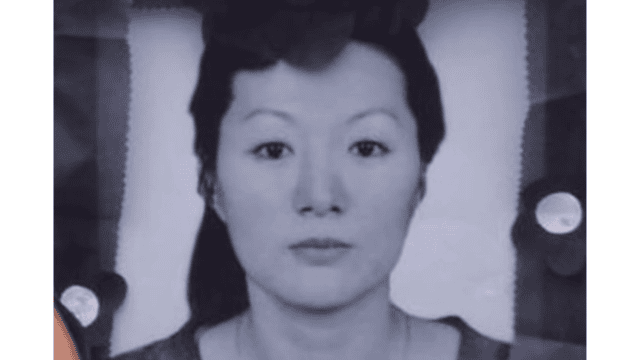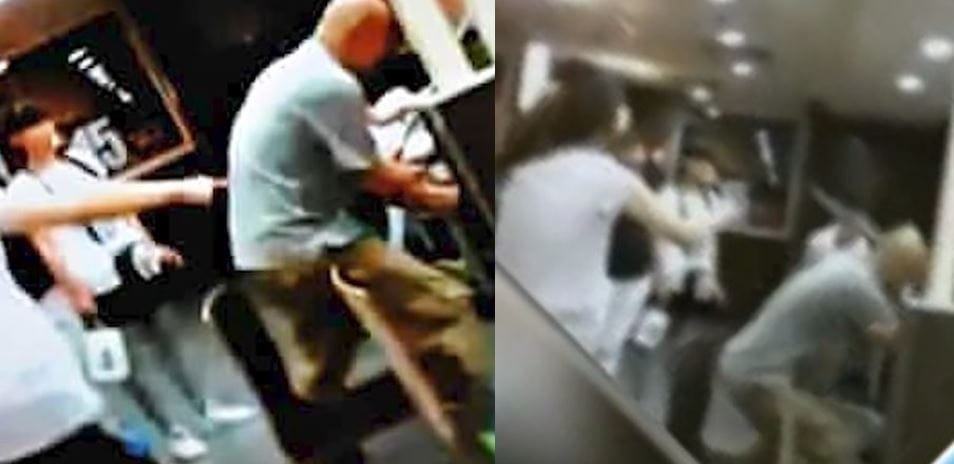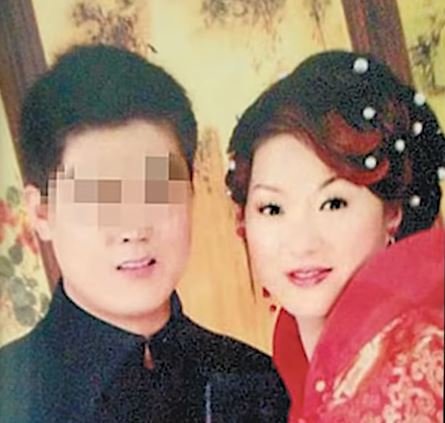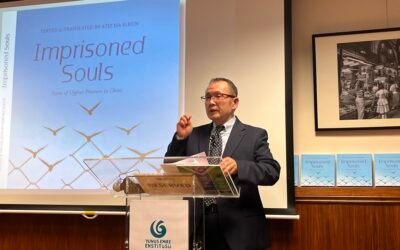The horrific details of the crime confirm that its perpetrators were not members of The Church of Almighty God.
by Massimo Introvigne
Article 5 of 6. Read article 1, article 2, article 3, and article 4.

In the story of the McDonald’s murder, perpetrated by a small religious movement and falsely attributed to The Church of Almighty God by Chinese propaganda, it is indeed impressive how, twenty-four hours in advance, the killing of a dog, described in the previous article, anticipated the killing of an unfortunate salesgirl, Wu Shuoyan.
While Zhang Lidong described the goriest details of the murder, it is worth quoting here the account of Lü Yingchun during her confession at trial, since it throws a special light on the spiritual significance of the crime as perceived by the group: “Zhang Hang asked that lady for her phone number, but she refused to give it to her. When I became conscious of it, I found out that we had been attacked and sucked by a ‘wicked spirit’ [恶灵], which caused us to be weak and helpless. The two of us identified her as that ‘wicked spirit’ [恶灵], and cursed her with words. Not only did she not listen, her attack got even stronger.”
The group saw Wu transfigured into a demon. “We saw the air on her body spiraling her back and tummy. Her tummy bloated, and our spirits sensed that her suction was growing stronger, and so was her attack. My body grew increasingly weaker. In the course of the battle, I saw Zhang Fan falling little by little, as if there was a ‘wicked spirit’ [恶灵] tugging her downwards. She screamed with all her might, but no sound came out of her mouth. I could only hear a very weak scream.” Immediate action was required. “I went to drag her up and she shouted at [her younger sister] Zhang Hang, saying, ‘Why did you not believe? Why didn’t you move?’ I saw Zhang Fan stomping on that woman’s head and shoulders after that, and I did the same on her waist and buttocks.”

There were no other options: the demon had to die. Unfortunately, to kill the demon it was necessary to kill the salesgirl who hosted it, Lü explained. “During the attack against us by the ‘demon’ [恶魔], Zhang Fan and I became gradually aware that the woman must die, otherwise it [the ‘demon’] would devour everybody. I thus told Zhang Lidong and the rest to beat her up until she stopped breathing. Otherwise, as long as she has breath, the strength of the ‘demon’s’ [恶魔] attack on us would not weaken one bit, even if her body was weak and she could not move. I told the people who came to stop us, ‘Whoever interferes will die’… The clash between the woman and us was a battle between two spirits, ‘God’ and ‘devil’ [魔鬼]. The others could not see it, and neither could they understand it. The police could not understand it as well.”
A significant detail was that the victim, Wu Shuoyan, was not an opponent of the group. They did not know her until they entered the McDonald’s. Her refusal to supply her phone number was, however, perceived as an evil deed of cosmic significance, an unpardonable sin against the duo of Lü Yingchun and Zhang Fan, the self-styled God himself, and the sign that the final battle between “God” and “the demons” had begun.

In the aftermath of the McDonald’s murder, which was captured by surveillance cameras and by amateur videos secretly shot by other customers, the Chinese public felt morally shocked by the fact that nobody in the restaurant prevented the murder. The assassins had no weapons; except for Zhang Lidong, four were women and one a child, and they could have been overcome by the other customers. Perhaps they were paralyzed by the extraordinary and sinister performance they were watching.
The whole group, including Zhang Lidong, his daughters, his son, and his lover, and Lü Yingchun, had entered the McDonald’s in Zhaoyuan on May 28, 2014. Except for the thirteen-year old Zhang Duo, all were arrested, jailed, and tried by the Intermediate People’s Court of Yantai on August 21. On October 11, Zhang Lidong and Zhang Fan were sentenced to death. Lü Yingchun was sentenced to life in prison. Zhang Hang was sentenced to ten years in jail and Zhang Qiaolian to seven years. On February 2, 2015, Zhang Lidong and Zhang Fan were executed.

An apparently inexplicable performance was enacted at the Intermediate People’s Court in Yantai on August 21, 2014, and in the jails where the defendants were interviewed. Apart from Zhang Hang, Zhang Fan’s younger sister, who declared herself not very religious and with mixed feelings about the whole story, none of the other defendants expressed any remorse and did nothing to avoid the harshest penalties. This is particularly surprising for Zhang Lidong, a man in his prime who had been well-off, although he declared himself unemployed, or in full service of his Gods, at the time of the murder.
One explanation may be that Lü Yingchun and Zhang Fan had already announced that they would soon leave Earth and return to Heaven, and that this was part of their divine plan. Execution was simply a way to leave this planet. We can even speculate that Lü would have preferred to share the death penalty with Zhang Fan rather than be sentenced to life in jail. After all, they were “two fleshly bodies sharing the same soul.” And Zhang Lidong might simply have wished to join his divine daughter in Heaven.

Massimo Introvigne (born June 14, 1955 in Rome) is an Italian sociologist of religions. He is the founder and managing director of the Center for Studies on New Religions (CESNUR), an international network of scholars who study new religious movements. Introvigne is the author of some 70 books and more than 100 articles in the field of sociology of religion. He was the main author of the Enciclopedia delle religioni in Italia (Encyclopedia of Religions in Italy). He is a member of the editorial board for the Interdisciplinary Journal of Research on Religion and of the executive board of University of California Press’ Nova Religio. From January 5 to December 31, 2011, he has served as the “Representative on combating racism, xenophobia and discrimination, with a special focus on discrimination against Christians and members of other religions” of the Organization for Security and Co-operation in Europe (OSCE). From 2012 to 2015 he served as chairperson of the Observatory of Religious Liberty, instituted by the Italian Ministry of Foreign Affairs in order to monitor problems of religious liberty on a worldwide scale.



